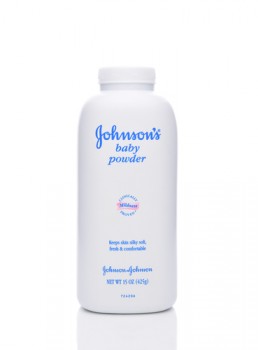Afternoon Briefs: Judge threatens to toss prison officials in hot cells; $37M award in baby powder suit

Image from Shutterstock.com.
Texas corrections chief testifies after judge threatens to lock up officials in hot prisons
Texas Department of Criminal Justice Executive Director Bryan Collier acknowledged in court Tuesday that the agency had failed to record prison temperatures in seven of eight prisons covered by a settlement in a suit over stifling cell temperatures. Collier testified after U.S. District Judge Keith Ellison had threatened to lock up prison officials in hot cells as a sanction. The 2018 settlement required air conditioning at the William Pack prison that housed the plaintiff inmate, and also required that the inmates be kept in air-conditioned facilities if they were moved to different prisons. Lawyers for the prisoners say the air conditioning broke down at one of the facilities where prisoners had moved. There are 75 prisons in the state without air conditioning, and there are no plans to record temperatures in those facilities. (The Texas Tribune)
Jurors award $37.3M to mesothelioma plaintiffs in baby powder suit
Jurors in New Jersey have awarded $37.3 million to four cancer victims and three spouses in a suit alleging that Johnson & Johnson’s talcum powder caused mesothelioma. A separate trial is expected to be held to consider punitive damages. Johnson & Johnson’s lawyer—Weil, Gotshal & Manges partner Diane Sullivan—had sought a mistrial in the case after the judge struck her entire closing argument. A Johnson & Johnson spokesperson said there were “egregious legal and evidentiary errors” in the trial, and its baby powder does not contain asbestos and does not cause cancer. Sullivan had argued that the cancer claim was “lawsuit fiction.” (The New Jersey Law Journal, the Asbury Park Press, Law360)
2nd Circuit nominee declines to answer questions about work for Trump administration
Democrats and Republicans expressed frustration Wednesday when federal appeals nominee Steven Menashi, an associate White House counsel, declined to answer questions about his work for the Trump administration. Democrats asked Menashi about his White House work on immigration issues, including the child separation policy, and about his Education Department work on a policy governing campus sexual assault investigations. Menashi, a former clerk for Supreme Court Justice Samuel A. Alito Jr., is nominated to the 2nd U.S. Circuit Court of Appeals at New York. (The Associated Press, Politico, the Washington Post)
Judge approves negotiation class in opioid litigation amid reports of one tentative deal
A federal judge overseeing massive multidistrict opioid litigation has approved an unusual negotiation class representing the nations’ cities, towns and counties to try to achieve a global settlement in opioid litigation. U.S. District Judge Dan Polster in Cleveland certified the class amid reports that one of the defendants, Purdue Pharma, a maker of OxyContin, reached a tentative deal valued at $10 billion to $12 billion to resolve most of the pending cases against the company. (The Cincinnati Enquirer, Bloomberg, Law360, the New York Times, the Washington Post)



